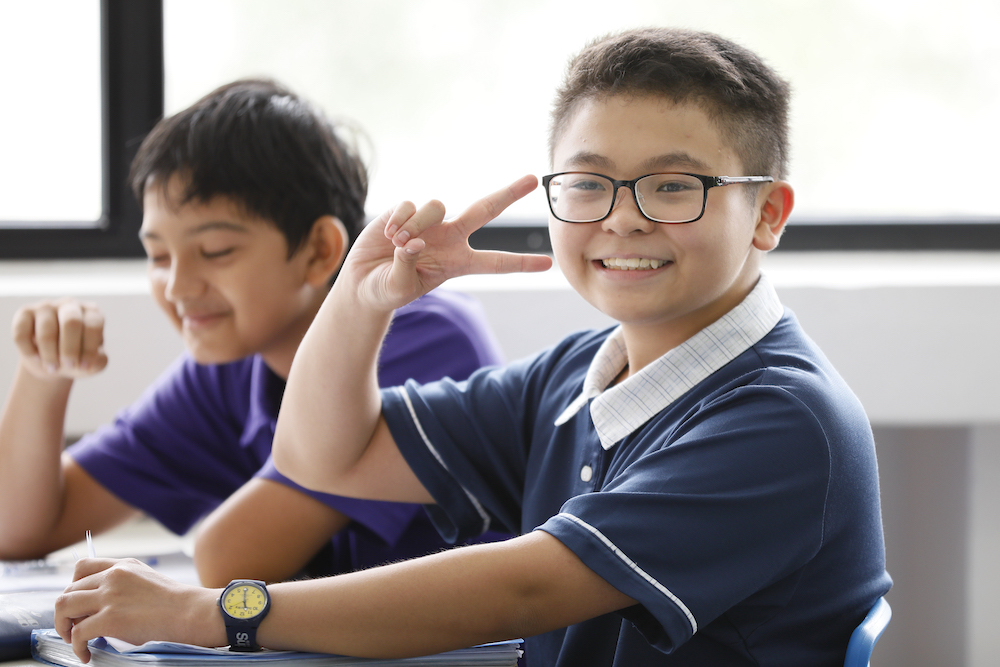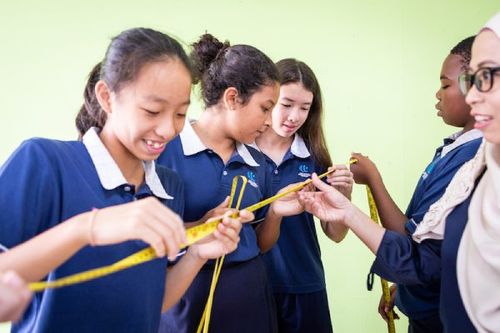Today’s students seem to be experiencing higher levels of stress and peer pressure than ever before. Factors that contribute to the problem may begin surfacing as early as the primary school years. Bullying and other negative influences can lead to low self-esteem, failing grades and risky behaviours.
The pressures of social media are ever apparent in the modern world and at times children can feel overwhelmed with trying to keep up with the trends. This can also affect things such as their concentration, learning, sleep patterns and relationships with others. Since children spend most of their time in school, schools are an ideal place to teach them how to manage stress. They are also key in monitoring children’s welfare, confidence and stress levels and are able to provide coping skills and support whenever needed.
We Address School-Related Stressors
Our teachers at OWIS play a pivotal role in helping children cope with negative influences and build healthy self-esteem. Posting encouraging notes or quotes around the room contributes to a positive atmosphere. Taking a few minutes to listen to their concerns helps our children feel appreciated and understood. Children are able to talk about their worries and do not have to keep feelings bottled up. They are taught that it is important to be open and honest when it comes to emotions.
We encourage teachers to lead classroom discussions on the effects of negative influences, and we invite our partners in the community to talk to students about stress and peer pressure. This also teaches students to be savvy when it comes to social media and similar sites. We model kindness to teach children to respect themselves and their peers, and most of all we teach them to be compassionate and always look out for one another.
Helping Students Deal with Stress
During Health Week in 2019, our students in grades 6, 7 and 8 were treated to a presentation by Gabriel Suppiah from the Score Campus. His message really resonated with the children as they learned about his background and his experiences with bullying when he was growing up. They also watched videos that gave them an up-close look at what bullying and peer pressure look like in action. This showed that bullying can take on different forms, and whether it is emotional or physical it is never acceptable.
After the video, Gabriel challenged the children to analyse what they had seen. What followed was an in-depth discussion about the detrimental impact bullying has on people’s self-esteem. Children were better able to decipher what was not acceptable. The children talked about how they should respond when encountering stressful situations – not only in the classroom but in everyday life. They also were able to discuss ways of dealing with situations that may involve bullying, who to talk to about it and how to move forward from these situations. It taught them to always understand right from wrong.
By the end of the presentation, they concluded unanimously that treating each other with respect is always the best thing to do. They also concluded that they would treat everyone, from any walk of life, with the same support and regard as they do their families and peers, and would always speak out if they think someone around them is not being treated with kindness.
Another highlight of Health Week was a presentation by Pooja Arora and Shirley Tay from Redefine Wellness. Pooja enlightened our children on the power of meditation, pointing out the difference between “Mindful” and “Mind Full.” Shirley took it from there, guiding the children through a 30-minute stress-relief and relaxation meditation exercise. This introductory session proved highly-effective, as evidenced by the serene, sleepy faces we saw by the time the half-hour drew to a close.
Pooja wrapped up with an explanation of the therapeutic effects of meditation on our bodies. She taught the children that mindfulness can be practised anywhere and is an amazing tool to help them throughout their lives. She also showed them that there are different types of mindfulness and meditation, from quiet time, to using music or story paths. After the mindfulness session she allowed the children to analyse how they felt during and after the session. When we’re feeling calm and in control, we’re much more likely to respond to difficult situations in a healthy way, rather than merely reacting to them. This is an essential life skill as undoubtedly in the children’s future there will be times when things may be difficult or stressful. By having ways of managing the feelings that come with this, they will be better prepared to manage these situations.

Our students and teachers look forward to applying what they’ve learned both inside and outside the classroom, making effective stress-management techniques a lifelong habit.
Please contact us for more information, or to book a tour.
(All photos in this blog article were taken in pre-Covid times.)
(This blog was originally written in collaboration with Ms Prachi Malhotra, former Primary School Teacher, OWIS Nanyang.)














